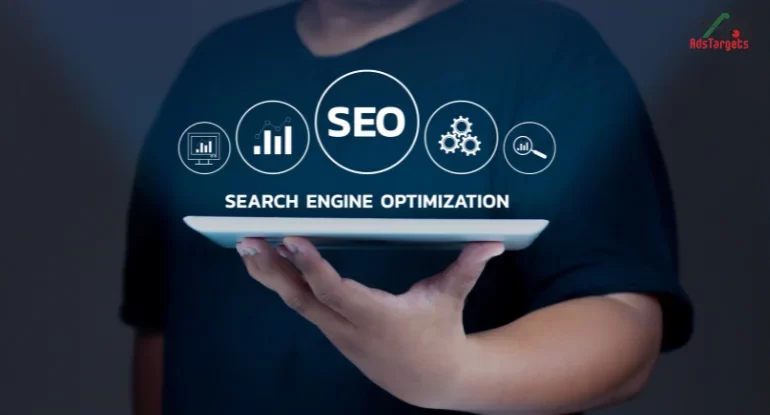With lots of tips and tricks for making your landing page better for SEO, it might feel like a lot to handle. There’s talk of keywords, links, and technical checks, and it’s easy to feel lost.
But why not begin with the basics? The main aim of SEO is to get your pages showing up on Google. But if your landing pages aren’t set up correctly, all your efforts will be wasted.
Landing pages are made to get people interested and to make them take action.
But imagine if your landing pages could also bring in lots of visitors without you having to pay for ads.
Making your landing pages better can help attract more people who are genuinely interested in what you offer.
In this guide, we’ll look at the best ways to create landing pages that are easy for search engines to find and that show up high in search results.
SEO for landing pages is a bit different from regular SEO, so it’s important to understand these distinctions. Let’s take a look at how to do it properly.
#1. Begin with researching and analysing keywords.
#2. Put your pages on your own website.
#3. Create a title that’s good for SEO.
#4. Make sure your URL is set up well for search results.
#5. Write a short and clear meta description.
#6. Plan your content carefully.
#7. Remember to make your images search engine-friendly.
#8. Develop a plan to get more links to your page.
#9. Keep any forms simple and easy for users.
#10. Don’t worry too much about how long your page is.
Table of Contents
ToggleTo start, do some keyword research just like you would for regular SEO.


You might already have some main keywords you’re focusing on, which is great. But it’s important to go further. Look into what’s happening in your industry, what your competitors are doing, and what you already know about your customers, especially those who will be interested in what you’re offering.
Choose long-tail keywords that match what people are looking for, and try to use them naturally in your content. You can also make your writing stronger by including other relevant keywords.
Put your pages on your website
When you’re making landing pages with good SEO in mind, the web address you choose is important. Remember, search engines like Google prefer to see your main website address in the URL rather than something random. So, always put your landing pages on your website.
This also helps keep your brand consistent and shows your visitors that they’re on your official website. Plus, it lets your landing page benefit from any search engine trust you’ve already built for your website.
Create a title that’s good for SEO
The title of your page is really important for SEO. Make sure it describes what your page is about, but keep it short. Search engines usually only show about 60 characters of the title in search results, so use them wisely.
And be sure to put your most important keywords at the beginning of the title. Search engines pay more attention to the words near the start of the title.
If you’re using more than one keyword in your title, use vertical bars to show which words go together.
Make sure your URL is good for search results
After your title, the web address of your landing page is the next most important thing for SEO. Putting your page on your website is a good start, but there’s more to it than that.
By making your URL even better, you help search engines understand where your landing page fits into your website.
You can use similar techniques to optimise URLs as you would with other web pages. Keep it short because search engines usually cut off URLs longer than 65 characters in search results.
Like with titles, put your most important keywords near the start of the URL, using slashes to separate different parts.


Write a short and clear meta-description
The meta description of your landing page doesn’t directly affect how high it shows up in search results like the title or URL does.
But it’s still important because it helps people decide if they want to click on your link or not. So, it’s part of SEO for landing pages.
Make your meta description short but informative. Tell people what they’ll find if they click on your link. If your description is vague, people might leave your page quickly, which isn’t good for your SEO.
Plan your content carefully
Landing pages are made to get people interested and make them want to buy or sign up. So, the words on your landing page should be chosen carefully to do just that.
And it’s really important to keep people interested so they stay on your page instead of leaving straight away. This is important for SEO for landing pages.
One way to make your landing page successful is to focus on the good things your product or service can do for people. Show them how much better their life could be if they use it. Keep your writing simple, short, and easy to understand because that’s what works best.
Make sure your page is set up well to catch people’s attention. Most people don’t read every word on a landing page, so a catchy headline can help them understand the most important parts. People also pay attention to subheadings, images, buttons to click, and other things they can see, so make sure these look good too.
Don’t forget about making your images work well for search engines.
It might be harder for search engines to understand pictures, but you can make it easier by doing a few things. Also, remember that people might look at the images in search results, so making your images better can help with SEO.
When you name your image files, pick names that describe the picture well but are short. Use dashes to separate words. When you write alt text for your images, ensure it describes the picture clearly and simply.
This text is important because it shows up if the picture can’t load, and it’s also used by screen-reading software for people who can’t see the images.


Put a plan in place to get more links
Getting other websites to link to yours is important for SEO, whether it’s for landing pages or any other page on your website. So, don’t forget to include link-building in your strategy.
Search engines check if other websites think your page is useful and relevant, and a link from another site is a big signal of that.
When other sites link to yours, it shows that people have read your content and liked it enough to recommend it to others. So, when you create landing pages, think about how easy it is for people to share them. You can add buttons to share on social media, or even offer something special in exchange for sharing.
Keep forms simple and easy to use
Landing pages often have forms for visitors to fill out because they’re meant to get leads for the company. The company gets the visitor’s information, and the visitor might get something in return, like a free ebook or entry into a competition.
But people don’t like filling out forms, and they can be impatient. So, try to keep your forms as simple as possible. Only ask for the information you really need, like their name and how to contact them.
And keep an eye on how many people leave your page without filling out the form. If lots of people are leaving, your form might be too long. Try reducing the number of fields and see if that helps.
#10. Don’t worry too much about how long your page is
A common belief among smart marketers is that longer content is better for SEO nowadays. But does this apply to landing pages too? Aren’t landing pages supposed to be short and straight to the point?
While longer content often ranks well in search results, there’s no solid proof that it’s because of its length.
What matters is that the content is helpful, well-researched, and full of useful information for visitors. This tends to lead to more shares, more engagement, and more links from other websites.
However, if landing pages become too long, they’re not as effective. So, instead of worrying about how long your landing page is, focus on making it concise and useful. If your content is well-optimised and helpful, it’s likely to rank well in search results.
Whether you’re creating standalone pages, adding content to your blog, or making landing pages, a good SEO strategy is key to reaching your goals.
But remember, SEO strategies need to change over time. Market trends, updates to search engine algorithms, and what people expect can all change, so it’s important to review your strategy regularly to ensure it’s still working.
You can use our detailed assessment to see how well your current strategy is doing. It’ll show you what’s working, what’s not, and what you can do to improve.
CONCLUSION
In conclusion, optimizing landing pages for SEO involves understanding the nuances of search engine ranking while focusing on user engagement and conversion. While some SEO principles apply universally, such as keyword research and link building, others, like page length, may vary. The key is to strike a balance between providing valuable, concise content and ensuring it is easily discoverable by search engines.
Prioritising user experience by simplifying forms and ensuring quick loading times is crucial for retaining visitors and maximising conversions. Additionally, incorporating social sharing features can amplify the reach of landing pages, potentially leading to more backlinks and increased visibility.
It’s essential to continually evaluate and adapt SEO strategies to align with evolving market dynamics and search engine algorithms. Regular audits using tools like our comprehensive maturity assessment can help identify areas for improvement and guide strategic refinements to maintain competitiveness in the online landscape.



